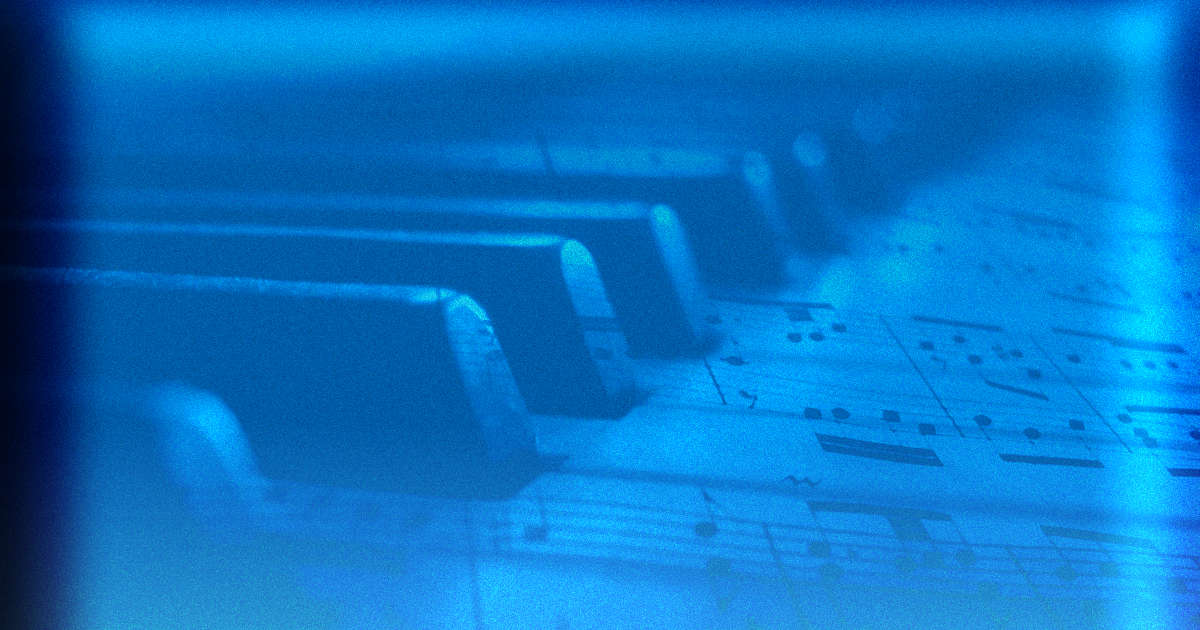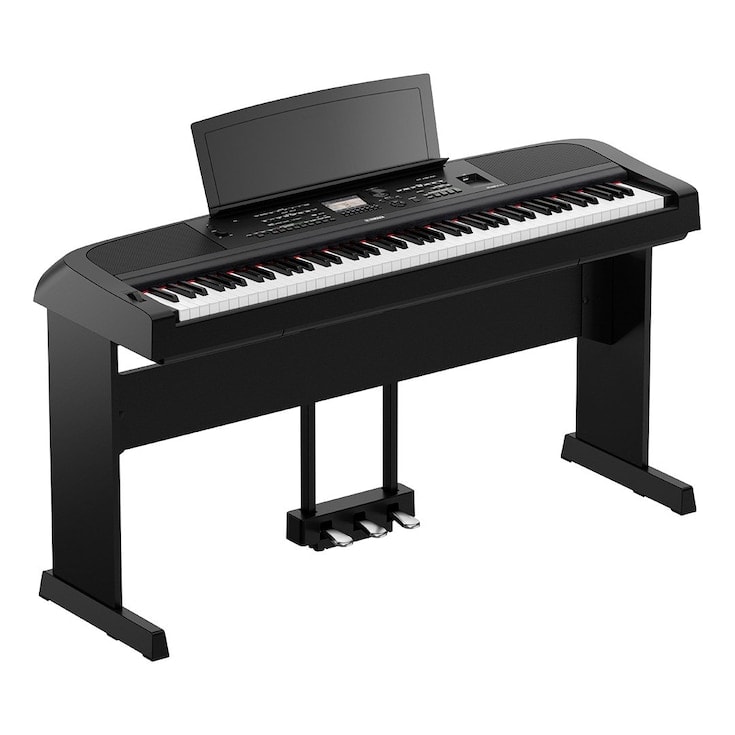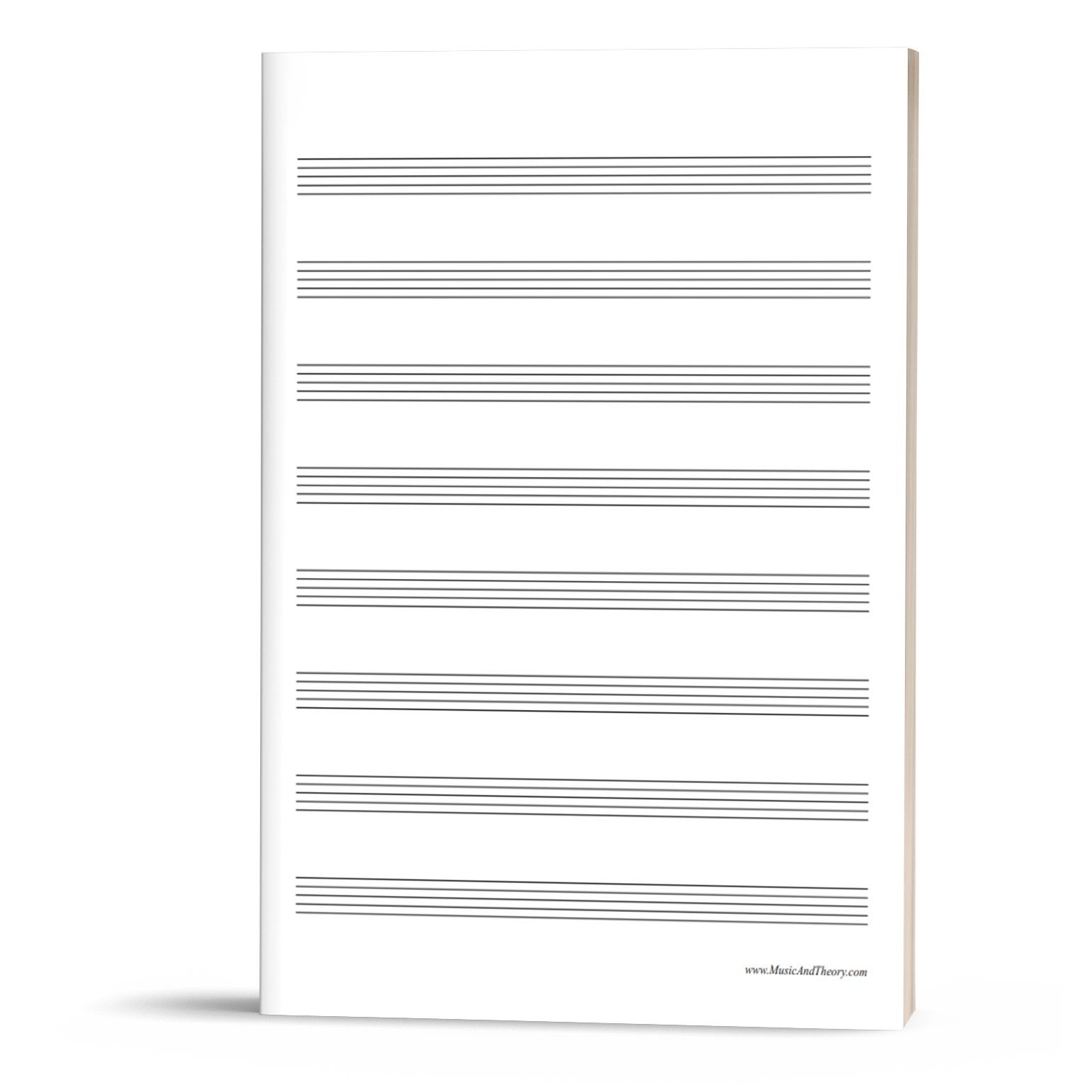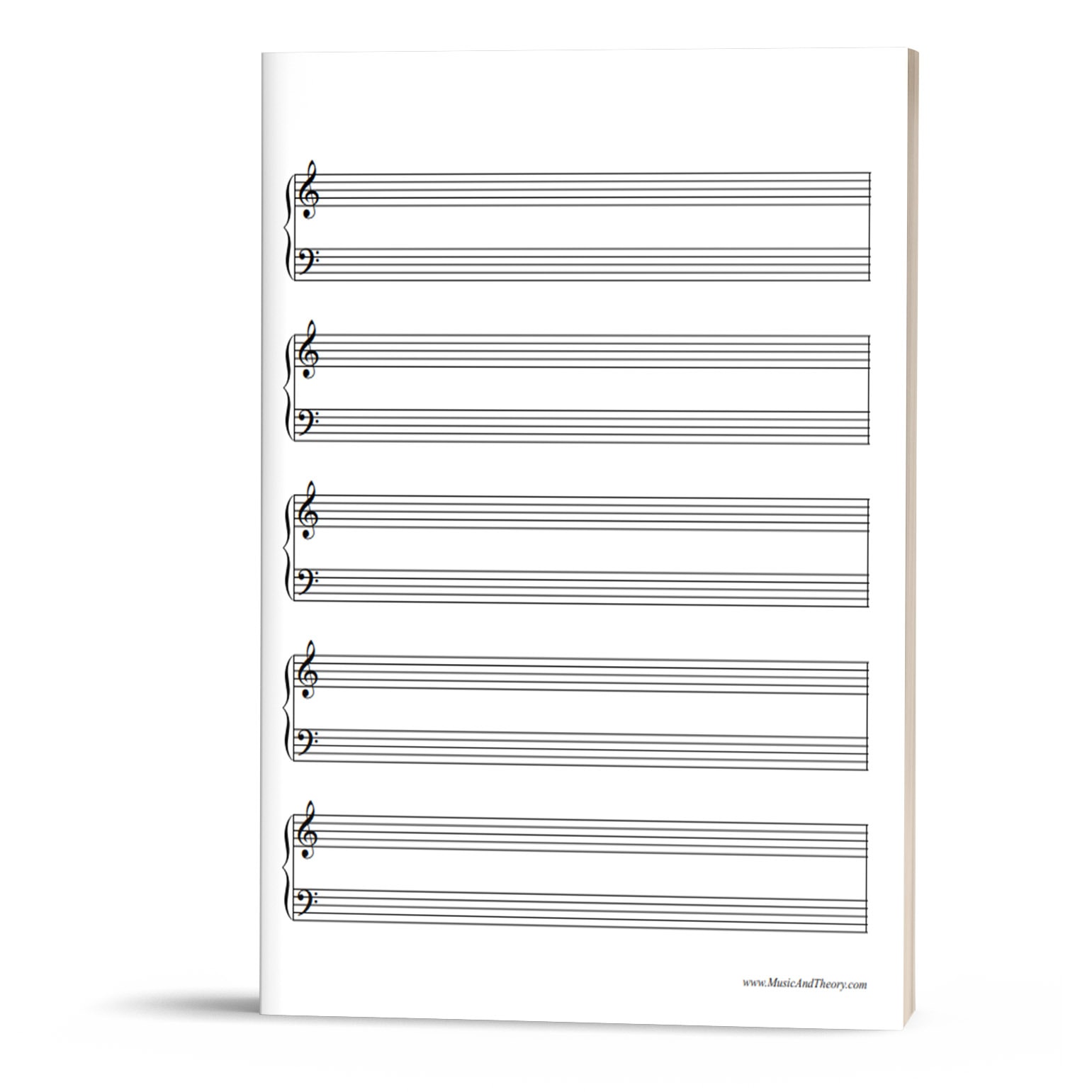What Do I Need to Compose Piano Music?
Affiliate links included: When recommending music products for you, I sometimes use affiliate links. If you click and make a purchase, I will receive a small commission. This doesn't cost you anything and helps me continue to provide you with helpful content and music resources. (All content and opinions are my own.)
So you want to compose piano music?
When you already know how to play the piano, composing piano music is really not as difficult as it seems.
Here's what you'll need:
1. A Piano (or Keyboard)
This seems like a no brainer, but you will need a piano. Relying solely on your brain or the sounds produced by your music writing software isn't enough. You NEED to play your music on the piano before you put it out into the world for other people to play.
Why? Too many composers never test out their own music. If you write music in your head or on paper/computer and then play it on a piano, you often discover things you want to change, or NEED to change, to achieve the perfect combination of "it sounds good" and "it's actually playable by a human being." (Yes, that stunning LH chord spanning 2 octaves sounds amazing -- but NO PIANIST has hands that size!)
Yes, you need the actual instrument. You can compose with an acoustic piano like a grand piano or upright (recently tuned), a digital piano, or even a keyboard in good condition.
Grand pianos and upright pianos can often be found on Facebook Marketplace for your local area (keep an eye out, I just saw one pop up in my local Buy Nothing group yesterday!).
If you're looking for a budget-friendly option, and you can't find anyone getting rid of a low-cost or free acoustic piano, I recommend the Yamaha DGX-670 digital piano. It just came out in 2021 and plays a lot like an acoustic, with the portability and convenience of a digital piano and a ton of useful sound and recording settings for composers and arrangers.
2. Recording Device
A recording device is extremely helpful. You don't have to have professional recording equipment, just something to preserve your compositions.
These days, nearly everyone has a recording device with them at all times: your mobile cell phone. If you have a sudden stroke of inspiration, but no time to write it down right now, make a quick recording on your phone. (I personally like to use my iPhone voice memo app to do this.) Later when you have time, you can listen to it and record or notate it properly.
If you're the type to noodle around on the piano until you stumble onto something brilliant, but you always have a hard time remembering exactly what you did, consider recording your whole noodling session. You can get rid of the useless stuff later, and you'll capture those brilliant stumbles right when they happen!
While not absolutely necessary, it's also a good idea to record your fully completed composition so that you can more easily share it with others. There are a wide range of recording tools ranging from your phone on up to equipment costing thousands of dollars. You'll want to decide what your goals are and what investment makes sense for you there.
Technically, if you don't have a recording device (or don't want to use it), you can do what composers did for hundreds of years: record it in writing. Which brings me to my next recommendation...
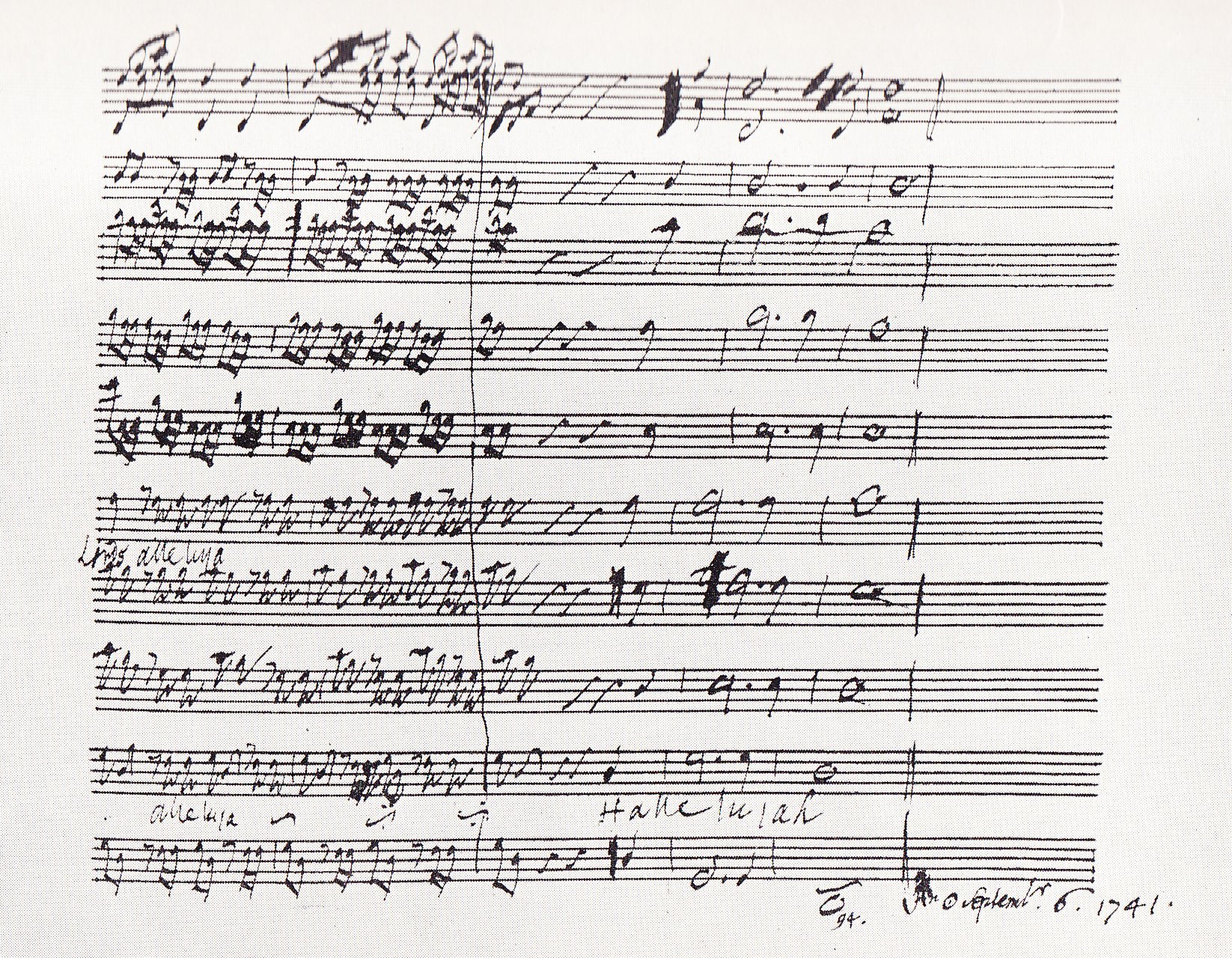
Handel's own manuscript of the final measures of the Hallelujah Chorus
3. Notation Materials
Now you need a way to notate or write down your music. If you know how to read music, you can notate music. (And if you don't know how to read music, I strongly recommend taking some private lessons to develop this skill.)
Always have a pencil and eraser (never a pen, otherwise you can't change it later!), and music staff paper, sometimes called manuscript paper. You can probably make your own staff paper with a ruler and printer paper, but if you've got a printer handy, I have some manuscript paper here that you can print for free. (Click the images below.)
If you don't feel comfortable writing out music just yet, practice by copying other people's music by hand onto staff paper. I recommend choosing a piano book from a reputable publisher so that you can feel confident it's a correctly engraved example. If you take care to write it out just as they did, you'll pick up on how to space notes, which direction to place the stems, how to write clefs, meters, key signatures, etc.
If you're not the pencil and paper type, consider getting music writing software. I used Sibelius to notate all of the sheet music on this site. Some other popular music writing programs are Finale and Dorico. A free entry-level software is Musescore. All of these programs have a learning curve, so bear that in mind if you're not especially computer savvy.
Now that you have all the basic materials, there are a few more things you'll need...
4. Inspiration and Ideas
What do you want to compose about? What inspires you? If you find yourself getting stuck, seek outside yourself for inspiration.
What images, places, emotions, events, people, stories, or life experiences inspire you?
If you're drawing blanks, just start anywhere. You could pick something in nature, or really anything in the world -- a butterfly, a storm, the ocean, a train, war, adventure. Think about that thing and what it sounds like to you. What emotions does it make you feel? What thoughts or images come to mind? Is there a story involved?
Then consider, what might those thoughts all sound like in music? What notes, what rhythms, what chords, what genre?
Another approach is to consider what music composed by other people has inspired you. What kind of music do you like playing? This can definitely help you get started, but make sure you don't just copy other people's ideas. Let them inspire you, but then take it somewhere new.
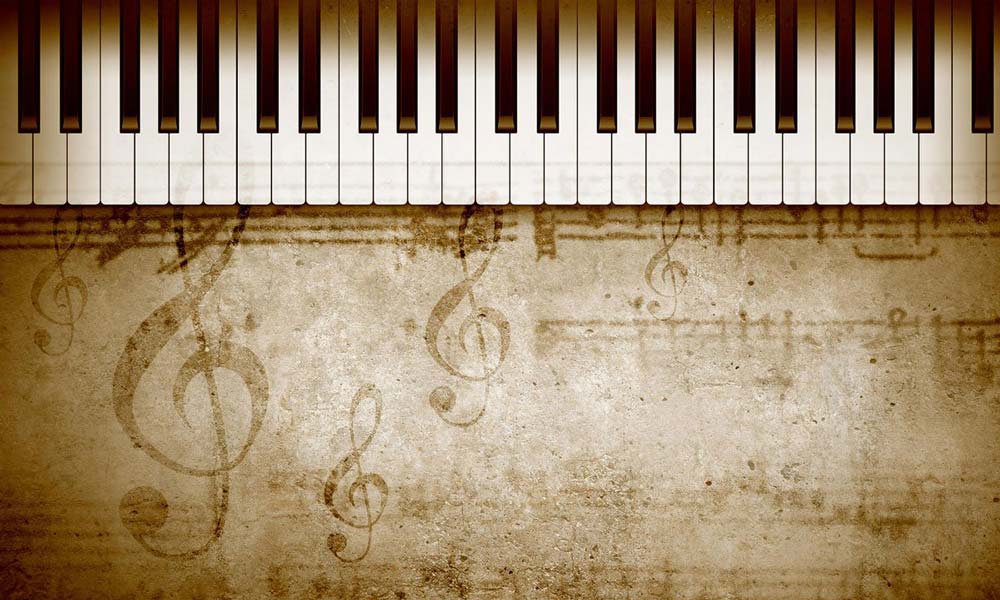
Lastly, some composers start out by arranging other people's music before they get into writing their own. Bear in mind that with arranging there are legal considerations; anything in public domain is free to arrange, but anything under copyright requires permission to arrange from the copyright holder. Consult a lawyer if you have questions.
5. An Understanding of Music Theory
Having at least some background and knowledge in music theory is crucial. Understanding chord structures, keys, harmony, meter, rhythm patterns, etc. helps composers create music that is memorable, interesting, unique, and organized.
Don't fall into the trap of thinking that you don't need to know music theory. Too many people have great ideas, but get stuck when they go to translate those ideas into music because they don't have the tools to make heads or tails of it. You don't have to have a college music degree, but some knowledge of music theory will go a long way for anyone looking to compose piano music.
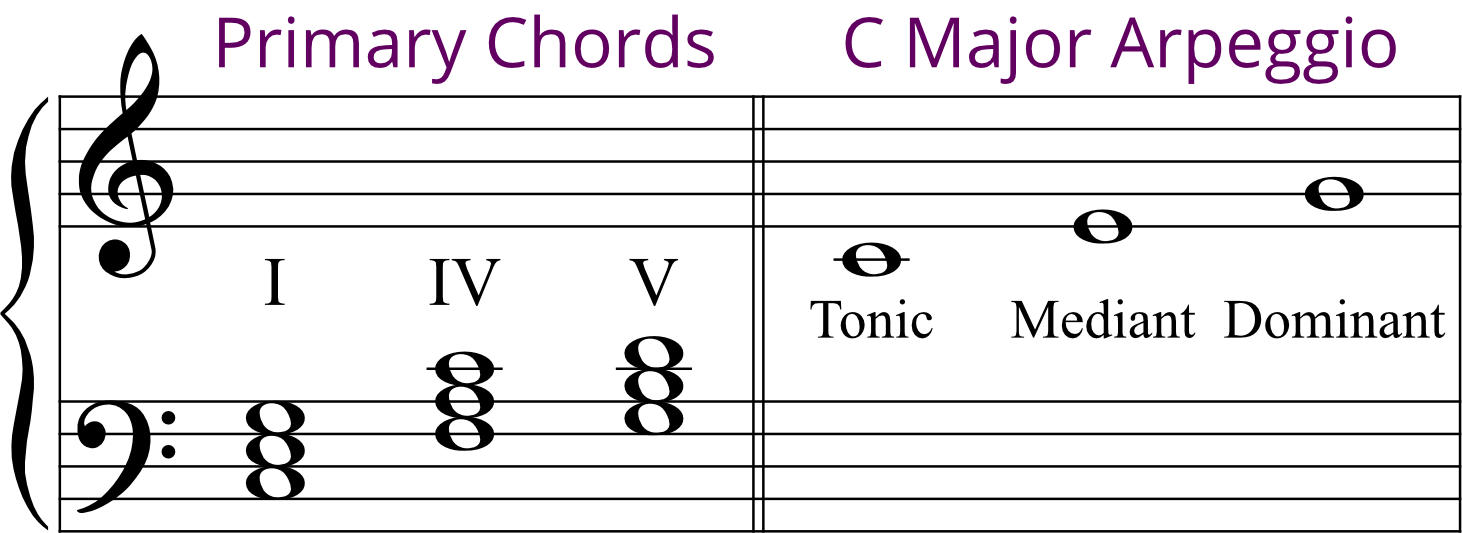
Imagine you're an artist, but you've never tried painting. Would you just jump right in without knowing what paints to use on canvas vs concrete, or how to mix colors, or how to properly layer colors, or how to prevent paint from fading, or how to safely clean your brushes? Sure, you can jump right in, but without that knowledge you'll definitely run into problems at some point.
If you want to compose but you have no experience with music theory, consider taking private music theory lessons or an online course. I promise you it will be worth it!
Go For It!
If you have a piano, a recording device, notation materials, inspiration, and some music theory knowledge, you have all the tools you need. Now it's time to go for it! Don't let fear hold you back.
Don't worry if your music handwriting is terrible (did you look at Handel's handwriting above??). Don't worry if ideas come slowly. Like most things in life, it'll get easier if you keep at it.
Don't put pressure on yourself that your first piece of music has to be a masterpiece. Let's be real -- it probably won't be. You may not even care for it at all. That's okay! You're starting a journey. This journey could take weeks, months, years, a lifetime. As you continue, you'll discover a greater love for music, and--dare I say it?--I bet your compositions will get better and better.
From one composer to another, I promise you it's worth it.
Time to get composing!

